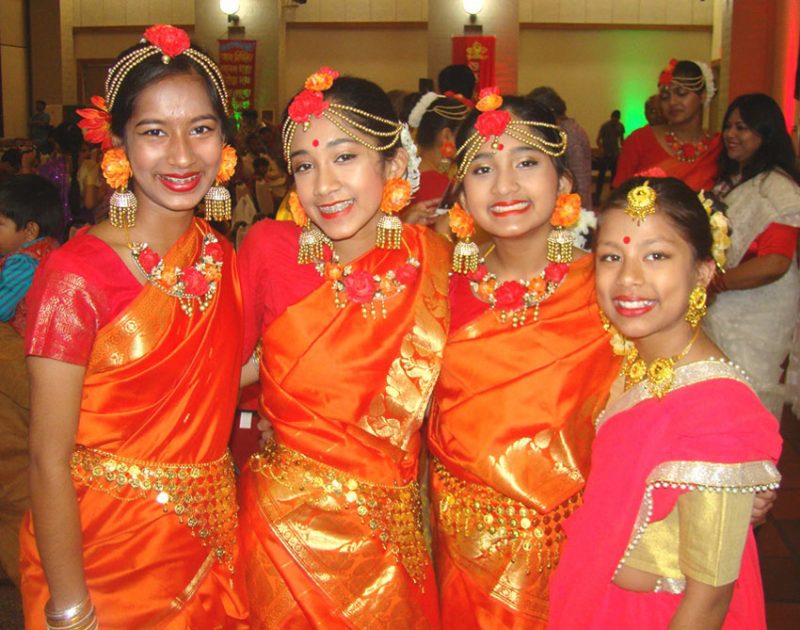Bengali New Year Celebration in Folsom, Calif.
The City of Folsom, in California, has already attracted a large immigrant community. With its rolling hills and technology employment (mainly Intel Corporation) this wonderful eastern extension of suburbia in Sacramento County and its vicinity, is now home to many South Asians. And from within this community the Bengalis are very slowly and steadily establishing a presence in not just Folsom but in the entire region. For those who may not be aware, the Bengali people have their largest presence in Bangladesh and the Indian State of West Bengal today. Their Diaspora is also formidable as their presence in the Middle East, Britain and Pakistan is much larger than in North America. And wherever Bengalis go, they take along their rich culture full of colorful attire, music, dance and poetry (the only native language South Asian writer to win the Nobel Prize for literature to this day is the Bengali poet Tagore).
The largest annual festival that Bengalis have is the Pohela Boishakh or Bengali New Year which is celebrated with a great deal of gusto in Bangladesh and India. It is also catching on here in America. In the greater Sacramento, California region it started off (I believe) in Davis, then moved to Orangevale and since it kept growing in size, had to find a home eastwards at the Folsom Community Center this year. This time, the event held on Saturday, April 13th had an outreach element to it as Folsom City Mayor Kerri Howell was the guest of honor. The formalities started with the American Star Spangled Banner followed by Amar Shonar Bangla (My Golden Bengal). The Mayor delivered a short speech here and took the opportunity to interact with some really colorfully dressed people. She was also able to witness some ethnic Bengali dances and even tried some Chom Chom (Mishti) desert!
It is believed that the Bengali calendar was re-introduced to the region by the Mughal Emperor Akbar in mid1500’s to expedite taxation. Unlike other New Year’s celebrations around the world the Bengali New Year starts at dawn instead of midnight, so there is a great deal of activity throughout the day. The official date for Pohela Boishakh this year was April 14th in Bangladesh and April 15th in India, but in America one must adapt and look for a convenient day on a weekend to get everyone together which is what happened here in Folsom.
Once again, kudos to the Anandamela Team for their efforts towards keeping Bengali culture alive in this part of California as some attendees drove long distances to attend. Along with clothing (Sarees) and jewelry for sale, food was a big attraction for some of us who just had to taste real Jhal Muri, Illich Maach and of course Bengali deserts which are hard to come by in their authentic form for non-Bengalis in this region. Featured songs written by Rabindranath Tagore like Esho He Boishakh and by Kazi Nazrul Islam are standard at this Grand Boishakhi Mela. They were played as backdrop to ethnic dances or performed live on stage as a team akin to a choir. Unfortunately time was short and this writer missed a great fashion show and a performance by Pandit Pathak.
To conclude, it is always nice to revisit Bengal for some of us who left many memories behind in its midst. Shubho Noboborsh (Happy Bengali New Year) 1426 from the Sacramento, California region to all of our readers!


